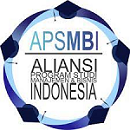DAMPAK PANDEMI COVID-19 TERHADAP PERILAKU KONSUMSI PARIWISATA: STUDI EMPIRIS PADA WISATAWAN DOMESTIK INDONESIA
Abstract
The Covid-19 pandemic has had an impact on all economic sectors, including the tourism industry and its supporting sectors. The pandemic has changed people's views of travel, behavior in choosing tourist destinations, and determining of the tourism consumption decisions. Meanwhile, the sustainability of the tourism industry highly depends on the flow of tourists and the perception of individual tourists.
This study identifies the tourist attitudes regarding hygiene and safety factors,identifies the tourist behavior in consuming of the tourism, and identifies tourism potential both during and after the Covid-19 pandemic. This research was conducted using a survey method through an online questionnaire to 353 respondents. Hypotheses testing was done using descriptive statistical technique which is one sample t-test using SPSS.
The results show that all hypotheses in this study can be supported.Travelers consider it very important to implement health protocols during thepandemic. The pandemic has not stopped tourists from taking trips, however the tourists tend to postpone their plans to the destinations with high Covid-19 virus infections. They avoid crowded destinations, prefer culinary tours and outdoor attractions near their residential areas, and avoid group trips. Original nature-based tourism objects (ecotourism, maritime, marine) and agriculture-based (agrotourism) that offer privacy and customization are considered potential to be developed during and after the pandemic.
Keywords: Tourist Destinations, Tourism Consumption, Tourist Behaviour, Hygiene and Safety
Downloads
References
Andrades, L., Dimanche, F., & Ilkevich, S. (2015). Chapter 4: Tourist behaviour and trends In book: Tourism in Russia: A management handbook: Emerald Editors.
Bhargava, H.D. (2020). ―Coronavirus History‖. WebMD Medical Reference. Available: https://www.webmd.com/lung/coronavirus-history
Brewer, N. T., & Fazekas, K. I. (2007). Predictors of HPV vaccine acceptability: A theory-informed, systematic review. In Preventive Medicine. 45(2–3), 107–114. Academic Press. https://doi.org/10.1016/j.ypmed.2007.05.013
Brewer, N. T., Weinstein, N. D., Cuite, C. L., & Herrington, J. E. (2004). Risk Perceptions and Their Relation to Risk Behavior. In Ann Behav Med . 27(2). https://academic.oup.com/abm/article/27/2/125/4630332
Cahyanto, I., Wiblishauser, M., Pennington-Gray, L., & Schroeder, A. (2016). The dynamics of travel avoidance: The case of Ebola in the U.S. Tourism Management Perspectives, 20, 195–203. https://doi.org/10.1016/j.tmp.2016.09.004
Cai, J. (2003). Pay attention to the influences of SARS on the psychological changes of tourists. In G. Zhang, & X. Wei (Eds.), Tourism in China: The impact of SARS and comprehensive revitalization (pp. 173–177). Beijing: Social Sciences Academic Press.
Chan, J. F. W., Yuan, S., Kok, K. H., To, K. K. W., Chu, H., Yang, J., Xing, F., Liu, J., Yip, C. C. Y., Poon, R. W. S., Tsoi, H. W., Lo, S. K. F., Chan, K. H., Poon, V. K. M., Chan, W. M., Ip, J. D., Cai, J. P., Cheng, V. C. C., Chen, H., … Yuen, K. Y. (2020). A familial cluster of pneumonia associated with the 2019 novel coronavirus indicating person-to-person transmission: a study of a family cluster. The Lancet, 395(10223), 514–523. https://doi.org/10.1016/S0140-6736(20)30154-9
%
Jurnal Bisnis dan Manajemen (JBM) allows readers to read, download, copy, distribute, print, search, or link to the full texts of its articles and allow readers to use them for any other lawful purpose. The journal allows the author(s) to hold the copyright without restrictions. Finally, the journal allows the author(s) to retain publishing rights without restrictions.
Authors are allowed to archive their submitted article in an open access repository, and the final published article in an open access repository with an acknowledgment of its initial publication in this journal









